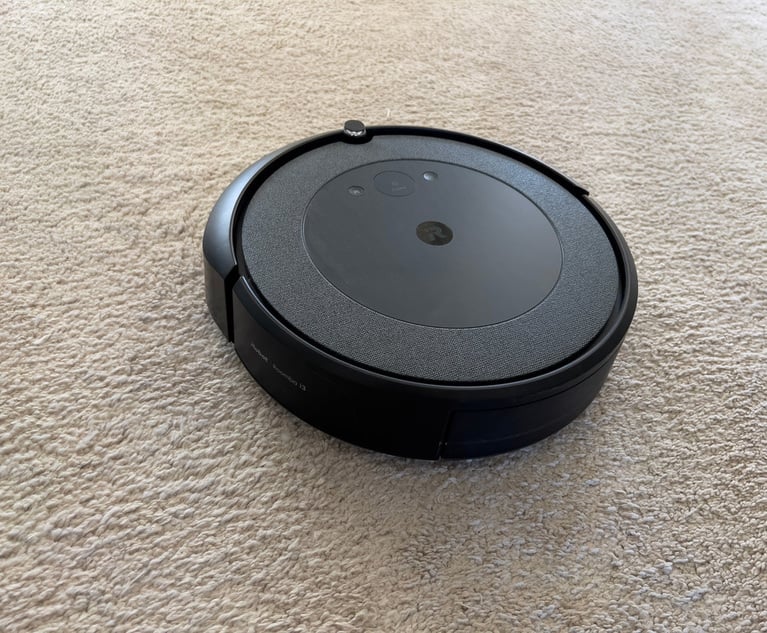In-House IP Lawyers Can Code Their Way Into New Gig
Recruiters say they are seeing a growing demand for in-house IP lawyers who can code.
March 08, 2018 at 05:23 PM
3 minute read
 Unlimited RF
Unlimited RF In-house intellectual property lawyers have long been expected to know how to write and communicate well, in addition to having a deep knowledge of the IP field. But now, it looks like it might be smart to add a new skill set to their toolbox.
According to recruiters who spoke to Corporate Counsel, in recent months, there has been an increased demand for in-house IP lawyers with coding experience.
“They're not that easy to find, and [demand] is significantly outweighing supply, so candidates with that background can demand higher than market compensation,” said Billie Moliere, district president of Robert Half Legal, a staffing and consulting firm. “This isn't going to stop, as long as our business is continuing to become more knowledge-based and tech-focused.”
She says companies have to be creative in their efforts to entice coding lawyers, because of the imbalance in supply. With many top companies seeking qualified candidates, a large salary offer isn't enough on its own. There may need to be relocation assistance, flexible work options or other perks, according to Moliere.
Carol Warren Simon, an in-house legal recruiter at Major, Lindsey & Africa's Bay Area office, says she's also seen an increased demand for in-house IP lawyers with substantial coding experience. She's noticed a specific need for lawyers with knowledge of open-source projects.
She described what an appealing candidate would look like: “It's a lawyer who probably has previous programming experience, and is very familiar, very familiar, with open source, at a level substantially deeper than most attorneys.”
She says the need for open-source expertise is actually driving the need for programming experience, in many cases. In open-source projects, original source code is made freely accessible online. People outside of the company can collaborate and edit the original code to develop the project further, which is helpful, but can sometimes lead to legal confusion over who gets credit for what.
“It's not as much about protection because open source by definition is not protected,” she said. “It has to do with efficiency, being more efficient within internal corporate departments, not having to keep going back and forth.”
Warren Simon also says she's seen an increased demand for IP lawyers who can manage a company's existing patents and figure out how to monetize what's already there, rather than a lawyer who can just constantly produce new patents without analyzing their value.
“IP can be expensive. Maintaining a portfolio of patents is expensive for a company,” she said. “So companies are increasingly looking at what they have with a critical eye—'Do I really need this patent and what am I supposed to be doing with this patent, other than paying to keep it in a portfolio year in and year out?'”
This content has been archived. It is available through our partners, LexisNexis® and Bloomberg Law.
To view this content, please continue to their sites.
Not a Lexis Subscriber?
Subscribe Now
Not a Bloomberg Law Subscriber?
Subscribe Now
NOT FOR REPRINT
© 2025 ALM Global, LLC, All Rights Reserved. Request academic re-use from www.copyright.com. All other uses, submit a request to [email protected]. For more information visit Asset & Logo Licensing.
You Might Like
View All

Apple GC’s Compensation Flat Again in 2024, but She Might Snag No. 1 Spot on Top-Paid List Anyway


SEC Puts Beat Down on Ex-Wrestling CEO Vince McMahon for Not Reporting Settlements
3 minute readTrending Stories
- 1Tuesday Newspaper
- 2Public Notices/Calendars
- 3Judicial Ethics Opinion 24-99
- 4Decision of the Day: NYPD Officer's Sexual Assault of Informant Occurred Outside Scope of Employment
- 5'Not the President's Personal Lawyer': Lawyers Share Concerns Over How AG Pick Bondi’s Loyalism to Trump May Impact DOJ
Featured Firms
Law Offices of Gary Martin Hays & Associates, P.C.
(470) 294-1674
Law Offices of Mark E. Salomone
(857) 444-6468
Smith & Hassler
(713) 739-1250






